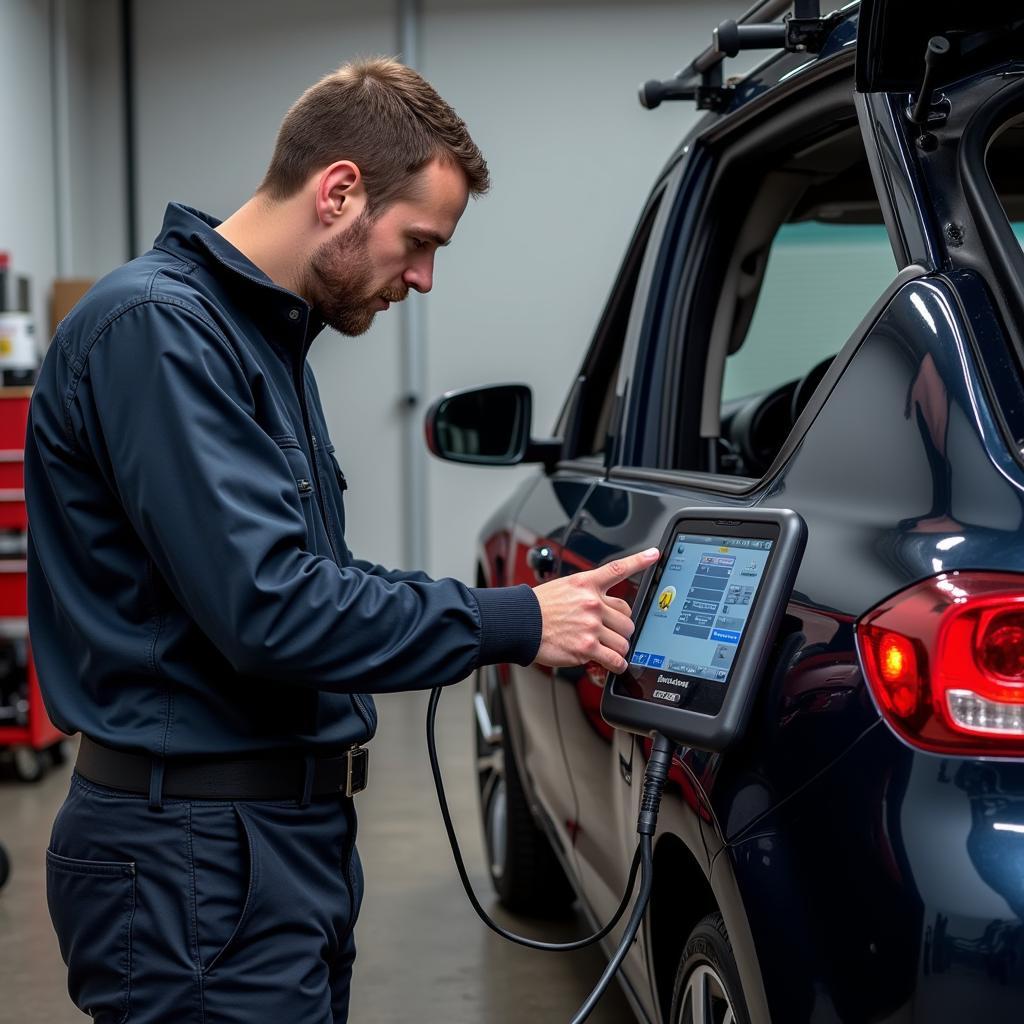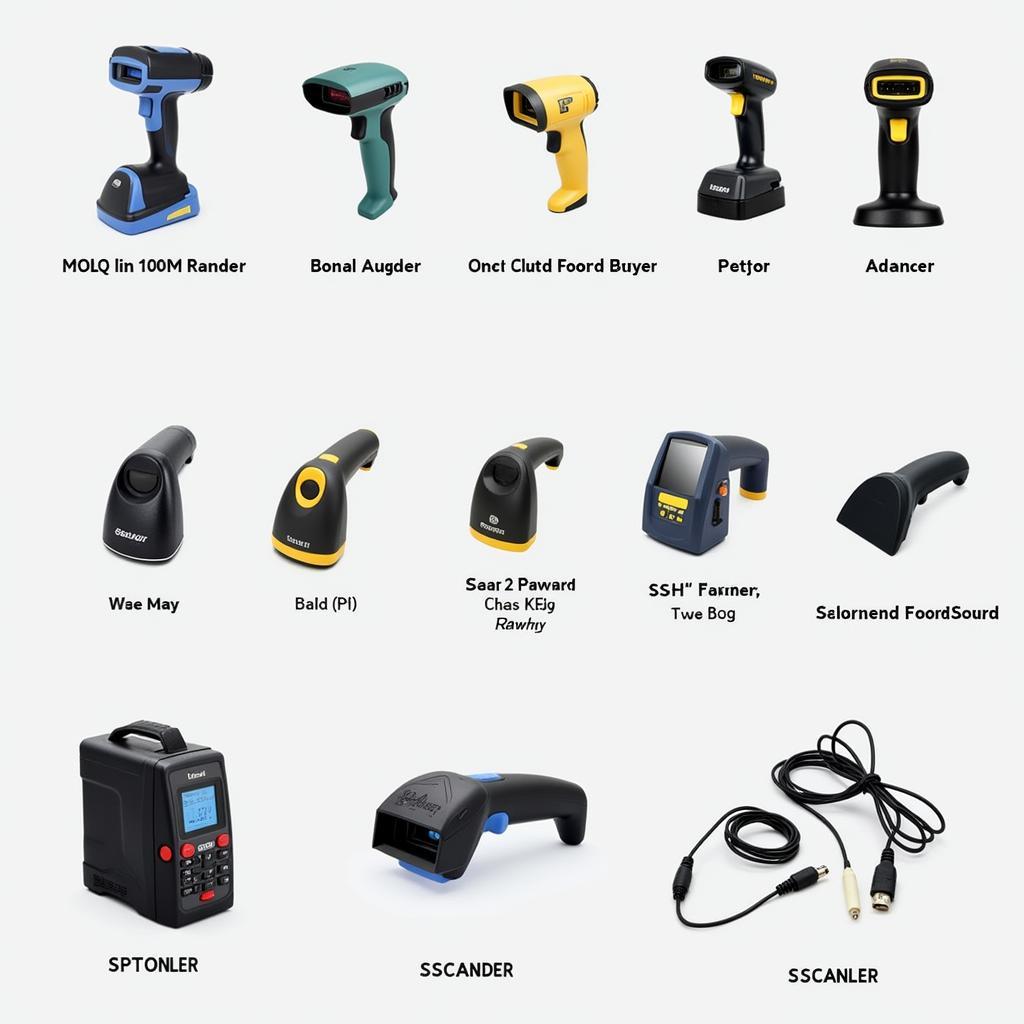Nội dung bài viết
- Understanding Diagnostic Trouble Codes (DTCs)
- How Scan Tools Help Interpret DTCs
- Types of Scan Tools for Automotive Diagnostics
- What are the Benefits of Using a mac tools diagnostics scanner?
- Choosing the Right Scan Tool
- How are vehicle diagnostic tool reviews helpful?
- The Future of Automotive Diagnostics
- Conclusion
- FAQ
Modern vehicles are complex machines, and diagnosing issues can be a daunting task without the right tools. Scan Tools For Automotive Diagnostics have revolutionized the way mechanics troubleshoot car problems, providing quick and accurate insights into the inner workings of a vehicle’s systems. Whether you’re a professional mechanic, a DIY enthusiast, or a car owner looking to understand your vehicle better, this guide will explore the world of scan tools and their crucial role in modern automotive repair.
Similar to a snap on tools diagnostic scanner, a good diagnostic tool can save you time and money. Before the advent of scan tools, diagnosing car problems was a time-consuming process of elimination. Mechanics would have to manually check various components, relying on their experience and intuition. Scan tools streamline this process by directly communicating with the vehicle’s onboard computer, retrieving diagnostic trouble codes (DTCs) that pinpoint the source of the problem. This not only saves valuable time but also increases the accuracy of the diagnosis, reducing the likelihood of replacing unnecessary parts.
Understanding Diagnostic Trouble Codes (DTCs)
DTCs are standardized codes that represent specific malfunctions within a vehicle’s systems. These codes are stored in the vehicle’s computer memory and can be accessed using a scan tool. Each code corresponds to a particular problem, such as a faulty sensor, a wiring issue, or a malfunctioning component.
How Scan Tools Help Interpret DTCs
Scan tools not only retrieve DTCs but also provide detailed descriptions of what each code means. This information empowers mechanics and car owners to understand the nature of the problem and determine the appropriate course of action. Some advanced scan tools even offer troubleshooting tips and repair procedures, guiding users through the diagnostic and repair process.
Types of Scan Tools for Automotive Diagnostics
The market offers a wide variety of scan tools, each catering to different needs and budgets. From basic code readers to sophisticated professional-grade scanners, choosing the right tool can be confusing. Let’s break down the different types:
- Basic Code Readers: These entry-level tools are designed to retrieve and display DTCs. They are generally affordable and suitable for car owners who want to understand basic car problems.
- OBD-II Scanners: These scanners are compatible with the OBD-II (On-Board Diagnostics II) standard, which is mandatory for all vehicles manufactured after 1996 in the United States. OBD-II scanners offer more advanced features than basic code readers, such as live data streaming and the ability to clear DTCs.
- Professional-Grade Scan Tools: These high-end scan tools are used by professional mechanics and offer a comprehensive suite of features. They can access all vehicle systems, perform advanced diagnostics, and even program certain modules. Examples include bosch automotive tools obd 1000 diagnostic vehicle scanner.
 Mechanic Using Professional Scan Tool in Workshop
Mechanic Using Professional Scan Tool in Workshop
What are the Benefits of Using a mac tools diagnostics scanner?
Professional-grade scan tools offer functionalities like bidirectional control, allowing mechanics to test components, and advanced programming capabilities. They also often provide manufacturer-specific diagnostics for more precise troubleshooting.
Choosing the Right Scan Tool
Choosing the right scan tool depends on your individual needs and budget. Consider the following factors:
- Frequency of Use: If you only need to check DTCs occasionally, a basic code reader may suffice. However, if you work on cars regularly, an OBD-II scanner or a professional-grade tool would be a better investment.
- Vehicle Compatibility: Ensure the scan tool is compatible with the make, model, and year of your vehicle. Some scanners are designed for specific vehicle manufacturers.
- Features: Determine the features you need, such as live data streaming, bidirectional control, and special functions. More features typically mean a higher price tag.
 Various Scan Tools for Automotive Diagnostics
Various Scan Tools for Automotive Diagnostics
How are vehicle diagnostic tool reviews helpful?
Reading reviews provides insights into real-world performance, ease of use, and specific functionalities of different diagnostic tools. This information can assist in making informed purchase decisions. John Smith, a certified automotive technician, emphasizes, “Investing in a quality scan tool is essential for any serious mechanic. It pays for itself in the time and money saved on accurate diagnostics.” Jane Doe, another experienced mechanic, adds, “Don’t underestimate the value of live data. Seeing how your car’s systems are performing in real-time is invaluable for troubleshooting complex issues.”
The Future of Automotive Diagnostics
As vehicles become increasingly sophisticated, so too will the tools used to diagnose them. Scan tools are constantly evolving, incorporating new technologies and features. The future of automotive diagnostics will likely involve cloud-based diagnostics, wireless connectivity, and even artificial intelligence-powered diagnostic software. A seemingly unrelated tool like the microsoft offline diagnostic tool can also be helpful in certain situations when diagnosing computer-related issues in vehicles.
Conclusion
Scan tools for automotive diagnostics are essential tools for anyone working on modern vehicles. From simple code readers to advanced professional-grade scanners, these devices provide valuable insights into the inner workings of a car’s systems, empowering mechanics and car owners alike to diagnose and repair problems quickly and accurately. If you need assistance, please connect with us at ScanToolUS. We are available at +1 (641) 206-8880 or you can visit our office located at 1615 S Laramie Ave, Cicero, IL 60804, USA.
 Futuristic Automotive Diagnostic Software Interface
Futuristic Automotive Diagnostic Software Interface
FAQ
- What is the difference between an OBD-I and OBD-II scanner? OBD-I scanners are used for older vehicles (pre-1996), while OBD-II scanners are for newer vehicles (1996 and later).
- Can I use a scan tool to clear my check engine light? Yes, most scan tools allow you to clear DTCs and reset the check engine light.
- Do I need a professional-grade scan tool if I’m just a DIYer? Probably not. An OBD-II scanner is usually sufficient for most DIY repairs.
- How often should I use a scan tool? You can use a scan tool whenever you suspect a problem with your car or as part of regular maintenance.
- Are there scan tools specifically designed for certain car brands? Yes, some manufacturers offer specialized scan tools for their vehicles.
- What is live data streaming? Live data streaming allows you to see real-time data from various sensors and systems in your car.
- Where can I buy a reliable scan tool? Reputable auto parts stores and online retailers are good places to start.
